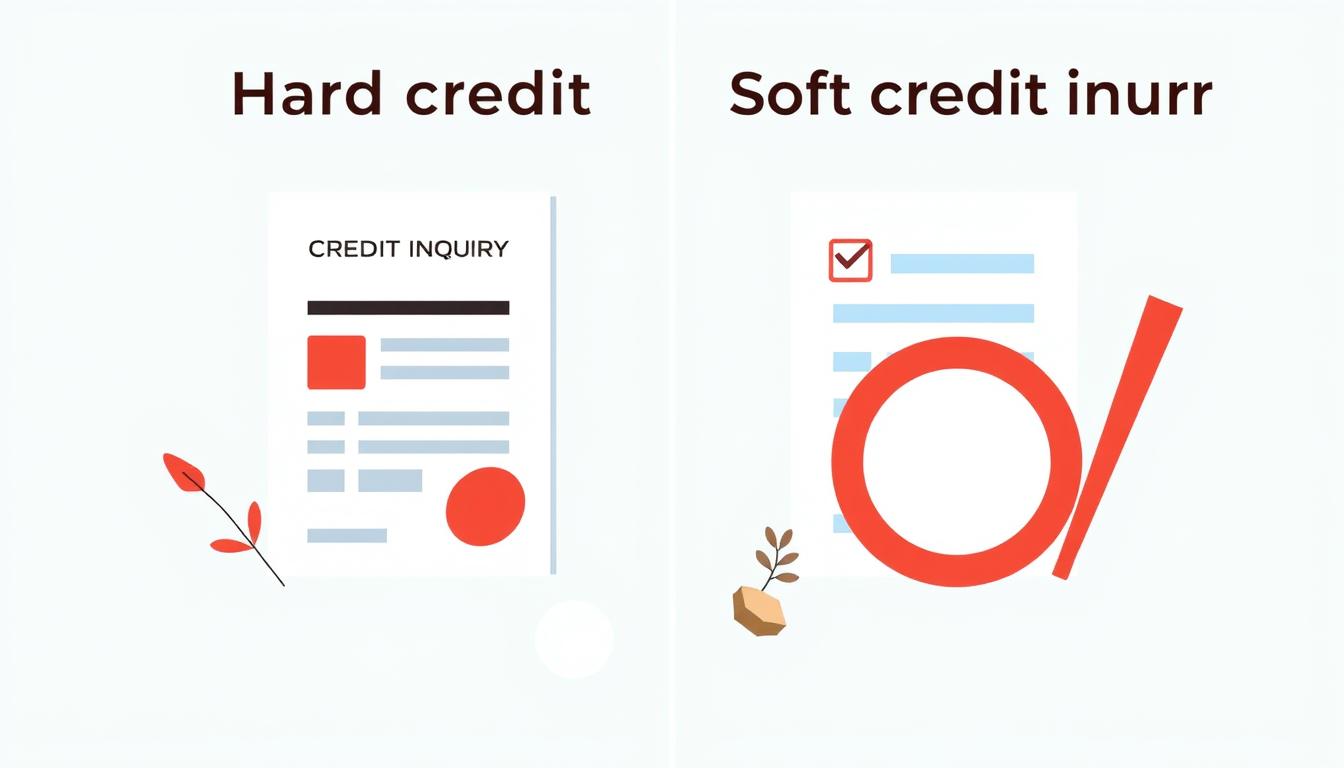Knowing your credit report is vital for financial health. CIC credit inquiries play a key role in this. They can affect your financial future significantly.
We’ll explore CIC credit inquiries in depth. We’ll look at their purpose and impact on your credit score. You’ll also learn how to manage them effectively.
Key Takeaways
- CIC credit inquiries are a critical component of your credit report, providing lenders with insights into your creditworthiness.
- Different types of credit inquiries, such as hard and soft pulls, can have varying impacts on your credit score.
- Lenders conduct CIC credit inquiries to evaluate your credit history and determine your eligibility for loans, credit cards, and other financial products.
- Regularly monitoring your credit report and addressing any errors or disputes can help maintain a healthy credit profile.
- Effective credit utilization management and timely payment of bills are essential for building and maintaining a strong credit score.
What is a CIC Credit Inquiry?
A CIC credit inquiry helps lenders assess your creditworthiness. It involves reviewing your credit report and score. This process determines the risk of lending to you.
Credit inquiries play a crucial role in your financial profile. They can affect your ability to get loans or credit cards.
Types of Credit Inquiries
There are two main types of credit inquiries:
- Hard Inquiries – These occur when you apply for new credit. They can slightly lower your credit score. Hard inquiries stay on your credit report for up to two years.
- Soft Inquiries – These are done for background checks or pre-qualifications. Soft inquiries don’t affect your credit score. Lenders can’t see them on your credit report.
Impact on Credit Score
Hard inquiries can cause a small dip in your credit score. They usually lower it by 5-10 points. This impact is temporary and your score typically recovers within a few months.
Soft inquiries have no effect on your credit score. They don’t show up when lenders review your credit report.
Knowing the difference between hard and soft inquiries is important. It helps you monitor your credit report effectively. This knowledge allows you to make smart decisions about your finances.
Why Do Lenders Perform CIC Credit Inquiries?
Lenders use CIC credit inquiries when you apply for credit. This step helps them assess your creditworthiness and determine lending risks. Your credit report provides crucial information for this evaluation.
Your credit history, debts, and payment patterns are key factors. Lenders use this data to predict if you’ll repay new credit. This helps them make smart decisions and reduce default risks.
CIC inquiries offer a full view of your financial behavior. This allows lenders to make responsible choices that benefit both parties.
| Key Reasons for CIC Credit Inquiries | Description |
|---|---|
| Evaluating Creditworthiness | Lenders use CIC credit inquiries to assess the risk of extending credit to a borrower based on their credit history and financial standing. |
| Determining Credit Limits | The information gathered from CIC credit inquiries helps lenders determine appropriate credit limits and terms for the borrower. |
| Verifying Identity | CIC credit inquiries can also be used to verify the identity of the borrower and prevent fraudulent applications. |
| Compliance with Regulations | Performing CIC credit inquiries helps lenders comply with various financial regulations and guidelines. |
Knowing about CIC credit inquiries helps borrowers prepare for credit applications. It can improve your chances of getting good credit terms. This knowledge also aids in maintaining a healthy credit history.

CIC Credit Inquiry: Evaluating Your Creditworthiness
Lenders use CIC credit inquiries to assess your financial reliability. They examine various factors to gauge your creditworthiness. This evaluation provides insights into your responsibility as a borrower.
Credit History Analysis
Your credit history is a key part of this assessment. Lenders review the length of your credit accounts and payment history. They also check for any negative marks on your credit report.
This information helps them understand your financial habits. It also shows the risk level of lending to you.
Credit Utilization Ratio
Lenders also look at your credit utilization ratio. This ratio compares your current credit use to your total limit. A ratio below 30% is seen favorably.
It shows you can manage your debt responsibly. This is an important factor in creditworthiness.
| Metric | Importance | Ideal Range |
|---|---|---|
| Credit History | Demonstrates financial responsibility and risk level | Longer credit history, positive payment history |
| Credit Utilization Ratio | Indicates debt management and available credit usage | Below 30% |
Understanding CIC credit inquiries helps you make smart financial choices. You can better manage your credit and maintain a healthy financial profile.
“Monitoring your credit utilization ratio and maintaining a low balance compared to your total credit limit can have a significant positive impact on your credit score.”
Hard vs. Soft Credit Inquiries
Hard and soft credit inquiries differ in their impact on your credit score. Understanding these differences is key to managing your credit effectively.
Distinguishing Factors
A hard credit inquiry happens when you apply for new credit. Lenders typically initiate this type of inquiry. Multiple hard inquiries in a short time can lower your credit score.
A soft credit inquiry occurs when you check your own credit report. Potential employers may also use soft inquiries for background checks. These inquiries don’t affect your credit score.
- Hard inquiries: Occur when you apply for new credit and can negatively impact your credit score.
- Soft inquiries: Initiated by you or a potential employer, and do not affect your credit score.
Knowing about hard and soft credit inquiries helps you make smart financial choices. It allows you to better manage your credit and plan for your future.
“Knowing the difference between hard and soft credit inquiries can empower you to take control of your credit health.”

How Long Do Credit Inquiries Stay on Your Report?
Credit inquiries are essential for understanding your credit report. Hard and soft inquiries give lenders insights into your borrowing history. Knowing how long they stay on your report is crucial for your financial health.
Hard credit inquiries happen when you apply for new credit. They typically remain on your credit report for two years. These inquiries can temporarily lower your credit score.
The impact of hard inquiries decreases over time. Eventually, they will disappear from your credit report altogether.
Soft credit inquiries don’t affect your credit score. They’re not visible to lenders and aren’t considered when calculating your cic credit inquiry.
- Hard credit inquiries remain on your credit report for up to two years.
- Soft credit inquiries do not impact your credit score and are not visible to lenders.
- Understanding the timeline of credit inquiries can help you monitor your credit profile and maintain a healthy credit history.
Knowing about credit inquiry timelines helps you manage your credit report effectively. Regular monitoring can help you spot and fix any errors. This ensures your report accurately shows your financial responsibilities.
Taking care of your credit profile can lead to better credit terms. It’s a key step in maintaining your financial well-being.
Checking Your Credit Report Regularly
A healthy credit profile is vital in today’s financial world. Regularly reviewing your cic credit report helps maintain good creditworthiness. This practice lets you spot errors that might affect your credit score.
Identifying Errors and Disputes
Examining your credit report can reveal various issues. These may include incorrect cic credit inquiries or misreported payment histories. Careful scrutiny helps catch these errors quickly.
You can then start the credit dispute process with credit bureaus. Addressing discrepancies is crucial for your creditworthiness. Quick action ensures your credit score reflects your true financial standing.
- Regularly review your credit report for any inaccuracies or errors.
- Initiate credit disputes with the credit bureaus to correct any identified issues.
- Stay vigilant and proactive in monitoring your credit profile for potential problems.
Make credit report review a routine part of your financial management. This habit helps you control your credit health effectively. It’s a small step that greatly impacts your financial future.
Stay on top of your cic credit inquiry and credit report. This practice will help you build a solid financial foundation.

“Regularly reviewing your credit report is one of the most effective ways to maintain a healthy credit profile and protect your financial well-being.”
Tips for Maintaining a Healthy Credit Score
A strong credit score is vital for securing good loan and credit card terms. On-time payments and managing credit utilization are key factors for a robust credit profile. Develop good habits and monitor your report to protect and improve your score.
Payment History Importance
Your payment history is the most crucial factor in determining your credit score. Lenders value consistent on-time payments as they show reliability and commitment. This demonstrates your ability to repay debts.
To maintain a healthy payment history, consider these steps:
- Set up automatic payments or calendar reminders to never miss a due date
- Communicate with creditors if you anticipate any difficulties in making a payment on time
- Dispute any inaccurate or fraudulent items on your credit report
Credit Utilization Management
Your credit utilization ratio is another vital factor in your credit score. It’s the percentage of available credit you’re using. Aim to keep your utilization below 30% to show responsible credit management.
To optimize your utilization:
- Request credit limit increases from your card issuers
- Pay down balances regularly to keep your utilization low
- Avoid maxing out or using a high percentage of your available credit
Focus on timely payments and maintain a healthy credit utilization ratio. These steps will help you build and keep a strong credit score over time.
Credit Monitoring Services
A healthy credit profile is crucial in today’s financial world. Credit monitoring services help you track your credit health. They alert you to changes and guide you on disputing errors or protecting your credit.
These services offer various features to manage your credit profile. Key benefits include:
- Real-time alerts on changes to your credit report, such as new accounts, credit limit changes, or suspicious activity
- Access to your credit score and detailed credit reports from the major bureaus
- Assistance with credit repair and credit freeze options to protect your identity
- Guidance on steps to improve your credit score and maintain a healthy credit profile
Credit monitoring services help you manage your cic credit inquiry and overall credit health. This is useful when making big financial decisions like applying for loans or mortgages.

Regularly review your credit report to maintain a strong credit profile. Address any errors and take steps to improve your credit score. A good credit monitoring service helps you stay on top of your finances.
When to Seek Professional Credit Assistance
Monitoring your credit report is crucial for a healthy credit score. Sometimes, professional credit assistance becomes necessary. Experts can guide you through credit counseling and repair.
Professional help is valuable when dealing with inaccuracies on your cic credit inquiry. Credit agencies can make mistakes. Disputing errors can be complex and time-consuming.
A credit counseling agency can help identify and address these issues. They ensure your credit report accurately reflects your financial history.
- If you’re dealing with substantial credit challenges, a credit counseling service can provide valuable guidance.
- For those unsure how to improve their credit score, a specialist can offer personalized strategies.
- If you’ve been a victim of identity theft or fraud, professionals can help correct your report.
Working with credit experts can help you overcome financial obstacles. You’ll gain knowledge and tools to achieve your goals. Your credit health is vital for overall financial well-being.
Professional guidance can be a valuable step towards a brighter financial future. It’s an investment in your financial success.
“Taking control of your credit health is an empowering journey, and professional assistance can be a transformative guide along the way.”
Conclusion
Understanding CIC credit inquiries is vital for maintaining good credit health. These inquiries affect your credit report and credit score. Stay informed about inquiry types and monitor your credit report regularly.
Soft and hard credit inquiries can impact your credit score differently. Review your credit report often to spot errors. Address any issues quickly to keep your credit health in check.
Knowing about CIC credit inquiries helps you manage credit effectively. This knowledge can lead to financial success. A good credit score opens doors to better opportunities.
Lower interest rates and financial stability are possible with a healthy credit score. Take charge of your credit health today for a brighter financial future.

